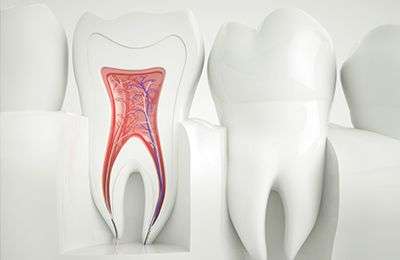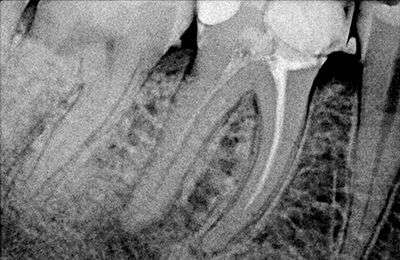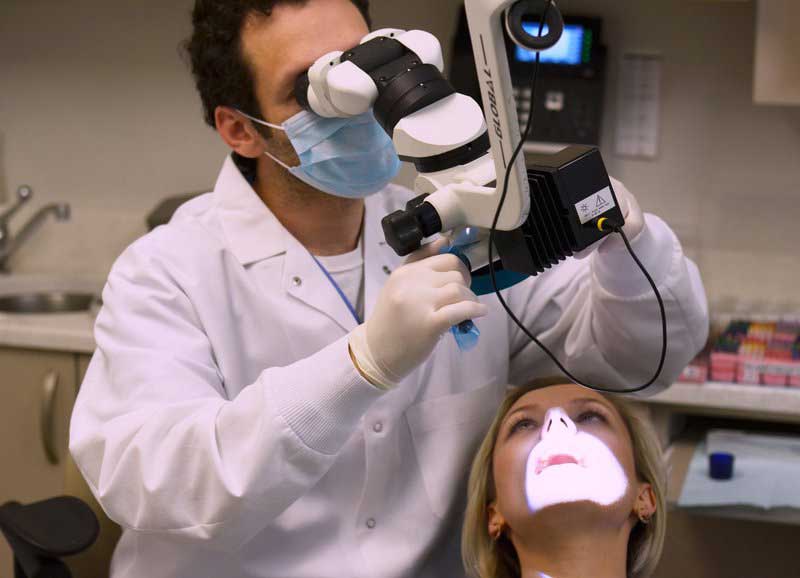What is Endodontics?
You are doing a great job.
Endodontics is a dental specialty that treats the dental pulp and tissues around tooth roots, often through procedures like root canals. Endodontists aim to save natural teeth by managing infections and tooth pain. In this article, we’ll delve into what is endodontics, the role of endodontists, common procedures, and the benefits of preserving natural teeth.
Key Takeaways
Endodontics is a specialized dental field focused on diagnosing and treating dental pulp and surrounding tissues, primarily aiming to preserve natural teeth and provide pain relief.
- Common procedures performed by endodontists include root canal treatment, root canal retreatment, apicoectomy, and treatment for traumatic dental injuries, all aimed at maintaining dental health.
- Recognizing symptoms such as persistent tooth pain, sensitivity, swelling, and abscesses is crucial for timely endodontic intervention, which can prevent complications and preserve natural teeth.
What is Endodontics?
Endodontics is a specialized branch of dentistry concentrated on the study and treatment of dental pulp as well as the tissues adjacent to the roots of teeth. This area of dental medicine is committed to maintaining natural teeth, often alleviating tooth pain and enhancing the durability of treated teeth. An endodontist’s primary objective is to retain a patient’s natural tooth when feasible, which can greatly benefit overall oral health and functionality.
Who is an Endodontist?
With additional years of advanced training after completing dental school, endodontists are expertly trained in managing complex aspects related to this particular field. They have extensive knowledge in diagnosing tooth pain, treating infections, and addressing conditions associated with dental pulp – the soft tissue within the tooth containing both nerves and blood vessels. These specialists have skills that enable them to carry out intricate procedures not typically performed by general dentists.

Common Procedures Performed by Endodontists
Endodontists are known for their expertise in performing a range of specialized dental procedures. One of the most common treatments is to perform root canal treatment. This involves the removal of damaged or infected tooth pulp from inside the tooth, cleaning and disinfecting the root canal system, and then filling and sealing the space.
Root canal retreatment is another procedure often performed by endodontists. Sometimes, the initial root canal therapy may not completely resolve the issue, and reinfection can occur. In such cases, endodontists “reopen” the tooth roots, by removing the previous filling, and treating the infection before resealing the tooth again. This meticulous process ensures that the affected tooth is given the best chance of recovery without the need for extraction.
An apicoectomy is a surgical procedure that involves removing the tip of a tooth’s root and any surrounding inflamed or infected tissue. This procedure is typically recommended when a root canal treatment has not completely resolved an infection or when there is a persistent inflammation. Removing the root tip and sealing the end of the root often allows endodontists to save the tooth from further complications.
Endodontists also treat traumatic dental injuries, which can cause significant damage to the dental pulp. These injuries, often resulting from accidents, require immediate and specialized care to prevent further damage and preserve the tooth. With their advanced training and expertise, endodontists are well-equipped to handle such emergencies, ensuring that the affected tooth is treated promptly and effectively.
Signs You Need Endodontic Treatment
Understanding when you require endodontic treatment is crucial for the preservation of your tooth. Persistent toothache, which intensifies upon applying pressure, typically suggests that there may be damage to the dental pulp needing prompt attention through endodontic care. Neglecting such discomfort can escalate into more serious issues, including infections capable of affecting adjacent areas within your mouth.
Another sign pointing towards the need for an endodontic care is when teeth become sensitive to temperature from drinks or food. An acute ache or lingering soreness after consuming something hot or cold often indicates problems with the dental pulp that must be remedied swiftly to avoid additional harm.
If you observe gum swelling near a particular tooth, this might denote inflammation or infection within the pulp and could call for intervention via endodontics. The presence of a dental abscess characterized by pus around any tooth also marks an infectious process that demands immediate medical action so as to prevent complications and potential loss of the affected tooth.
Changes in coloration—specifically darkening—of a single tooth can signal deteriorating health within its inner structures and thus necessitate urgent emergency procedures associated with endodontic therapy.
Benefits of Saving Your Natural Teeth
Maintaining your natural teeth is essential for preserving the proper alignment and functioning of your jaw. They are a vital component in overall oral health, impacting not only speech and chewing abilities, but also influencing digestive wellbeing. By keeping a natural tooth intact, you contribute to the delicate harmony of your mouth’s environment, which encompasses gum health and jawbone stability.
The preservation of natural teeth serves as an anchor for adjacent teeth, preventing unwanted movement that can lead to dental misalignment. This support is fundamental for a healthy bite and helps sidestep issues associated with tooth loss. By circumventing tooth extraction, there’s less need for more complex and expensive treatments like implants or bridges that cannot fully match the performance or look of original teeth.
Endodontic treatment halts infection from spreading to nearby tissues thus averting additional harm. Addressing problems in the afflicted tooth reduces potential bone deterioration within the jaw region. Keeping natural teeth assists in steering clear from complications linked with endodontic surgery while promoting strong oral health outcomes.
When to See an Endodontist
Common signs that indicate the need for endodontic treatment include:
- Persistent tooth pain
- Sensitivity to hot or cold
- Swelling around the gums
- Abscesses
These symptoms often point to underlying issues with the dental pulp that require specialized care.
Immediate pain relief, often through medication or anesthesia, is a priority in managing endodontic emergencies. Follow-up care is crucial after emergency treatment to monitor healing and manage post-treatment concerns. Regular visits to an endodontist can help catch and treat tooth pain early, preserving your natural teeth and maintaining your oral health.
Your Comfort and Care
In our clinic, we place a high priority on ensuring you’re comfortable and receive compassionate care tailored to your needs. Our skilled endodontists are focused on delivering a pain-free experience by employing state-of-the-art methods and technology designed to reduce any discomfort. From the moment you enter our facility, it is our mission to make certain that you feel calm and assured about the care you’ll receive.
To increase your comfort level during treatments, we offer numerous conveniences such as options for sedation, cutting-edge techniques for managing pain effectively, and an inviting atmosphere created specifically for relaxation. We have a team prepared to address even those patients who deal with significant anxiety with empathy and attentiveness.
The expertise of our endodontic experts is founded upon years of additional education beyond what’s typical in dental school—establishing them as authorities in their area capable of executing intricate procedures accurately and gently. Our commitment lies in offering exceptional endodontic treatment while fostering enduring connections with everyone who entrusts us with their care.
Schedule a Free Consultation with Our Endodontic Experts
Should you be suffering from ongoing tooth pain, discomfort when consuming hot or cold substances, or gum swelling, it’s important to act promptly and arrange for a professional evaluation. Our endodontic experts are on standby to deliver the specialized treatment necessary to protect your natural teeth and uphold your oral health. We are open 7 days a week.
We provide complimentary initial consultations and accept many dental insurances. Call us today for relief from dental discomfort and ensure the well-being of your smile!
Author: Dr. Steven Lipner
 Our Providers
Our Providers
 Blog
Blog
 Contact us
Contact us
 Endodontics
Endodontics
 Root Canal Treatment
Root Canal Treatment
 Emergency Root Canal
Emergency Root Canal
 Root Canal Retreatment
Root Canal Retreatment
 Complimentary Teeth Whitening
Complimentary Teeth Whitening
 Teeth Whitening
Teeth Whitening



